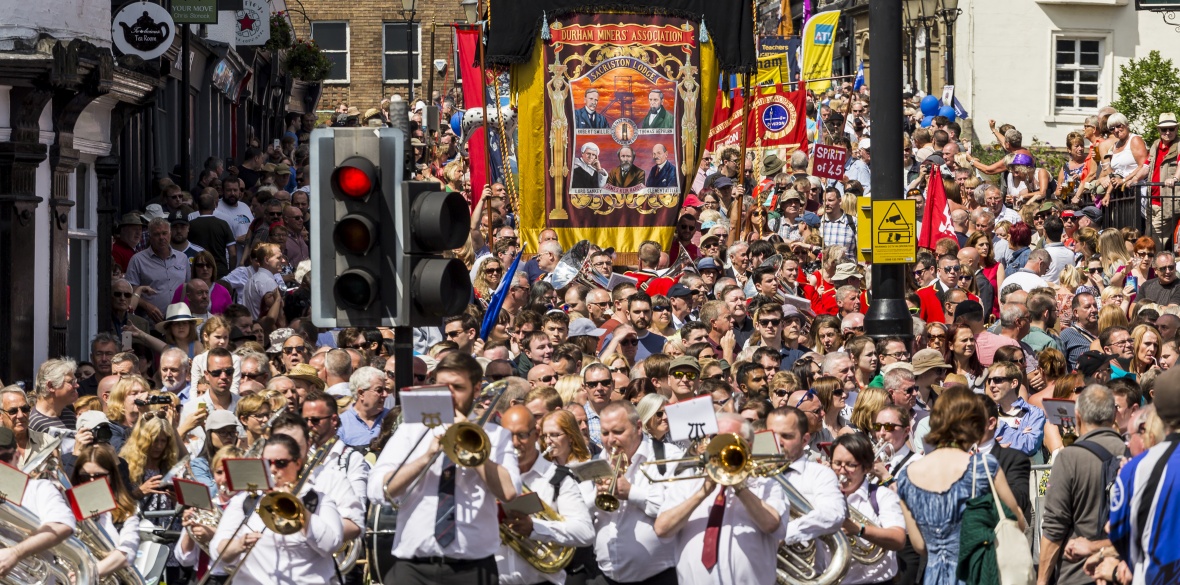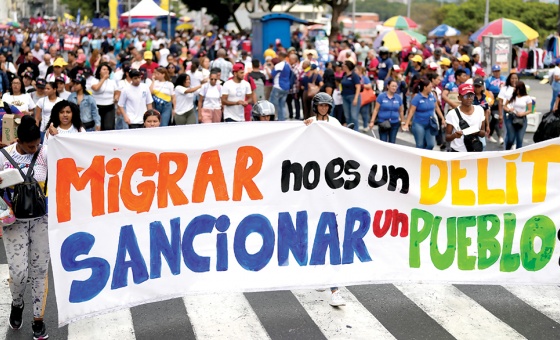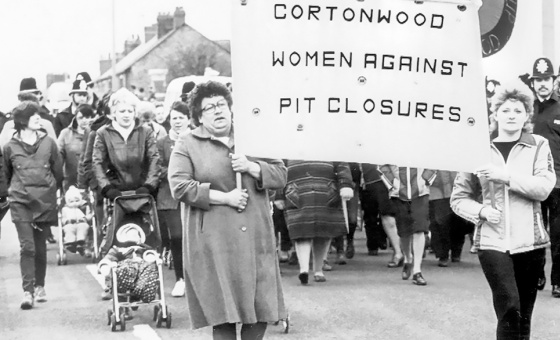THE second Saturday in July usually sees the biggest of all labour movement festivals.
The Durham Miners’ Gala – replaced this year by an online celebration because of the ongoing risk posed by Covid-19 – is unique, combining a celebration of the heritage and culture of the coalfield, the banners and the bands, with a forceful call to arms on behalf of the oppressed and exploited of today.
Besides attracting trade unionists and socialists from across Britain and beyond it is a local celebration of people and place, an event – too rare in a society atomised by Thatcherism, in which workplaces and communities are dissociated – which sees a whole city and county party together.
In recent years Jeremy Corbyn’s annual address to the Big Meeting was an explicit signal that Labour again aspired to be the voice of the organised working class after years in which Tony Blair and Gordon Brown had snubbed it.
But December’s election result showed that the alienation of working-class communities from the party could not be suddenly reversed by an attractive manifesto.
And it was attractive – poll after poll showed big majorities for extending public ownership to transport, energy and water, taxing corporations more and taking radical action on climate change.
But Labour’s loss of support was a slow-motion car crash, recorded in the steady loss of thousands upon thousands of votes in “heartland” constituencies in successive elections from 1997. Its majorities were often so huge that it took more than two decades before the cumulative vote loss translated into a collapse in parliamentary representation, though this happened slightly earlier in Scotland.
As Alex Niven observed in Tribune magazine before the last election: “The Labour majority in Hartlepool sank from over 17,000 in 1997 to 14,000 in 2001, and then from 7,000 to 5,000 between 2005 and 2010 (in the same period, the South Shields majority dwindled from 22,000 to 11,000, Sedgefield from 25,000 to 8,000, and Darlington from 13,000 to 3,000).” Though it suits the Labour right to blame Corbyn for the 2019 defeat, the election merely followed a long-established pattern: it was 2017, when Labour significantly raised its vote, that was the outlier.
If the Big Meeting is a coming together of community, trade unionism and politics, it must provoke us to address the estrangement between the three. For most socialists the defeat of the Corbyn project has been the bitterest blow of recent years, but this newspaper was not alone in warning that an economy rigged in favour of the rich could not be fundamentally reformed by electing a socialist prime minister.
That struggle is one that must be fought on multiple fronts, in Parliament and local government, but first and foremost directly in the workplace and the neighbourhood, mobilising the collective strength of ordinary people to effect change.
As Labour’s deputy leader Angela Rayner points out, Covid-19 presents a threat to working-class communities on a scale not seen since the Thatcher years. As then, millions stand to lose their jobs; as then, a Tory government stands ready to use mass unemployment to force down wages and rip up workplace rights, while letting whole regions slide into long-term poverty.
What a tragedy that would be when coronavirus has starkly shown us the value of some of the worst paid and most exploited workers in the country: when the case for a new deal is stronger than ever.
The labour movement’s effectiveness will be brutally tested in the fight to protect these communities – to stop the closures and the job losses and the pay cuts. In the process, it can once again sink deep roots into working-class communities and rebuild its stature and strength. But it will be the fight of a lifetime.










